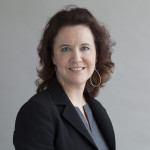2012 Toner Prize Honorable Mention for ProPublica
“Campaign 2012: Revealing Dark Money”
From the Judges: “This is first-rate investigative journalism, and in the wake of Citizens United, it is exactly what a news organization with the resources of ProPublica should be doing.”
The Stories: From ProPublica’s submission: “In his ruling in Citizens United, Supreme Court Justice Anthony Kennedy wrote that the possible corrupting effects of unlimited political contributions from corporations and unions would be erased by ‘transparency,’ enabling ‘the electorate to make informed decisions and give proper weight to different speakers and messages.’
In its coverage of Campaign 2012, ProPublica set out to test that proposition and found that Kennedy failed to anticipate the hundreds of millions of dollars in secret donations coursing into elections through so-called social welfare nonprofits.
These groups can legally engage in politics as long as their primary purpose is enhancing public welfare. But under loose IRS oversight, ProPublica found, many have become – or were set up to be — nakedly political.
Kim Barker undertook a forensic examination of what these so-called dark money groups had done. She faced formidable obstacles: No one had assembled a comprehensive list of such organizations, let alone attempted to track their machinations. The groups were often ciphers run out of post office boxes. Their leaders had little inclination to share.
Still, cobbling together information from tax returns, elections filings and obscure documents called applications for IRS recognition of tax-exempt status, Barker bared the playbook social welfare groups deployed on a grander scale in 2012.
In her takeout “How Nonprofits Spend Millions on Elections and Call It Public Welfare” — called “groundbreaking” by Politico — she found groups often misled the IRS, promising not to engage in politics, then doing just that. She also showed how nonprofits – like Karl Rove’s Crossroads GPS – underreported their political activities, classifying expenditures on election ads as ‘education’ or ‘issue advocacy.’
In subsequent stories, Barker, Justin Elliott, Olga Pierce and intern Theodoric Meyer worked to unspool the other ways in which dark money was entering the campaign. One story showed how a dark money group apparently coordinated with candidates on campaigns for office, a violation of elections laws. Another detailed how these funds helped tip a critical U.S. Senate race. And a December piece showed how dark money helped remake state legislatures, allowing Republicans to control redistricting and dominate Congressional races.
Before our dark money investigation began, few understood the expanding political muscle of social welfare nonprofits or the Internal Revenue Service’s primary role in overseeing such groups.
Our reporting laid out a clear roadmap for what the IRS can do to ensure that politically active nonprofits meet the standards set out by the tax code and justify the subsidies they receive from taxpayers. Perhaps spurred by media coverage, the IRS has indicated it plans to take a closer look at such groups going forward.
The agency also has withheld recognition of tax-exempt status from several social welfare nonprofits, including Crossroads GPS, the prolific dark money group launched by GOP strategist Karl Rove.
ProPublica was the only news organization to obtain Crossroads’ pending application for IRS recognition, in which the group promised “limited” spending on elections. Despite threats from the IRS that doing so could expose us to criminal penalties, we published this document in December.
The Reporters:
 Kim Barker has been a reporter at ProPublica since 2010, writing stories on campaign finance and the aftermath of the BP oil spill that have run in outlets such as The Washington Post, The Atlantic and Salon. She’s specialized in “dark money,” or social welfare nonprofits that do not report their donors for election ads. In late 2009 and early 2010, Barker was the Edward R. Murrow Press Fellow at the Council on Foreign Relations in New York, where she studied, wrote and lectured on Pakistan and Afghanistan and U.S. policy. She was the South Asia bureau chief for the Chicago Tribune from 2004 to 2009 and was based in New Delhi and Islamabad. At the Tribune, Barker covered major stories such as the assassination of former Prime Minister Benazir Bhutto and rising militancy in both Pakistan and Afghanistan. Her book about those years, “The Taliban Shuffle: Strange Days in Afghanistan and Pakistan,” was published by Doubleday in March 2011.
Kim Barker has been a reporter at ProPublica since 2010, writing stories on campaign finance and the aftermath of the BP oil spill that have run in outlets such as The Washington Post, The Atlantic and Salon. She’s specialized in “dark money,” or social welfare nonprofits that do not report their donors for election ads. In late 2009 and early 2010, Barker was the Edward R. Murrow Press Fellow at the Council on Foreign Relations in New York, where she studied, wrote and lectured on Pakistan and Afghanistan and U.S. policy. She was the South Asia bureau chief for the Chicago Tribune from 2004 to 2009 and was based in New Delhi and Islamabad. At the Tribune, Barker covered major stories such as the assassination of former Prime Minister Benazir Bhutto and rising militancy in both Pakistan and Afghanistan. Her book about those years, “The Taliban Shuffle: Strange Days in Afghanistan and Pakistan,” was published by Doubleday in March 2011.
 Justin Elliott has been a reporter with ProPublica since 2012, covering politics with a focus on money and influence. He was previously a reporter at Salon.com and TPMmuckraker and news editor at Talking Points Memo. He was also a fact-checker at Mother Jones.
Justin Elliott has been a reporter with ProPublica since 2012, covering politics with a focus on money and influence. He was previously a reporter at Salon.com and TPMmuckraker and news editor at Talking Points Memo. He was also a fact-checker at Mother Jones.
 Olga Pierce has been a reporter at ProPublica since 2009, specializing in data-driven stories. She is a winner of the 2011 Livingston Award for National Reporting and received an honorable mention for the Toner Prize for Excellence in Political Reporting, both for her reporting on increasing corporate interference in the drawing of congressional districts. She also shared 2011 Scripps Howard and Society of Business Editors and Writers awards as part of a team focusing on foreclosures. Olga has appeared on CBS News and C-SPAN, and her stories have been featured in the New York Times, USA Today, Chicago Tribune and the Hindustan Times in New Delhi. She is a graduate of the Stabile Investigative Journalism Seminar at Columbia University, where she won a Horton Prize for health reporting. Olga is fluent in Czech and has a bachelor’s in international economics from Georgetown University.
Olga Pierce has been a reporter at ProPublica since 2009, specializing in data-driven stories. She is a winner of the 2011 Livingston Award for National Reporting and received an honorable mention for the Toner Prize for Excellence in Political Reporting, both for her reporting on increasing corporate interference in the drawing of congressional districts. She also shared 2011 Scripps Howard and Society of Business Editors and Writers awards as part of a team focusing on foreclosures. Olga has appeared on CBS News and C-SPAN, and her stories have been featured in the New York Times, USA Today, Chicago Tribune and the Hindustan Times in New Delhi. She is a graduate of the Stabile Investigative Journalism Seminar at Columbia University, where she won a Horton Prize for health reporting. Olga is fluent in Czech and has a bachelor’s in international economics from Georgetown University.
 Theodoric Meyer is an intern at ProPublica. He was previously an intern at The New York Times and The Seattle Times and has written about everything from triceratops to the data centers Google and Facebook operate in rural Oregon. He has also reported from Madrid for GlobalPost. He is a graduate of McGill University and Columbia University’s Graduate School of Journalism.
Theodoric Meyer is an intern at ProPublica. He was previously an intern at The New York Times and The Seattle Times and has written about everything from triceratops to the data centers Google and Facebook operate in rural Oregon. He has also reported from Madrid for GlobalPost. He is a graduate of McGill University and Columbia University’s Graduate School of Journalism.
-30-
